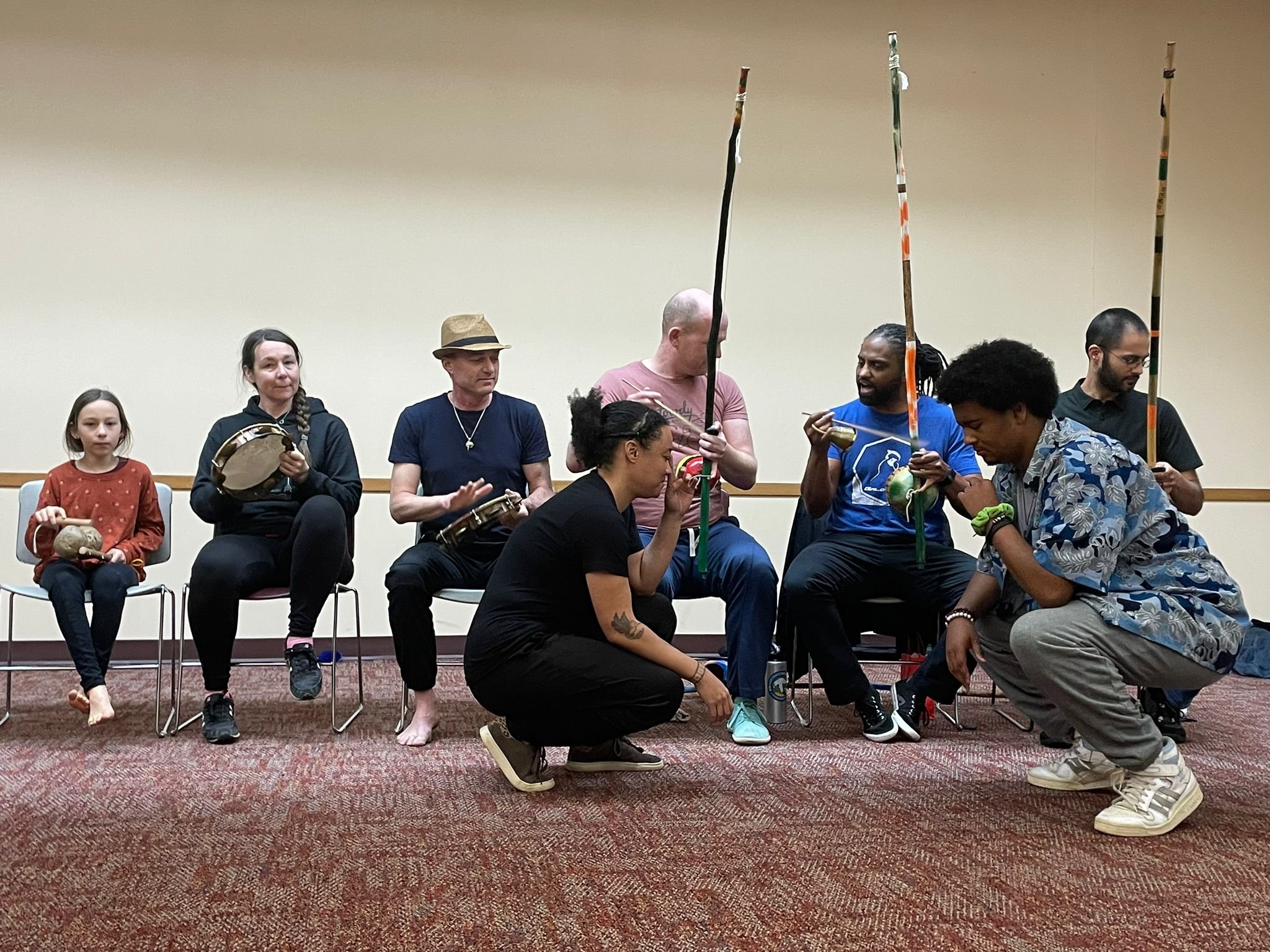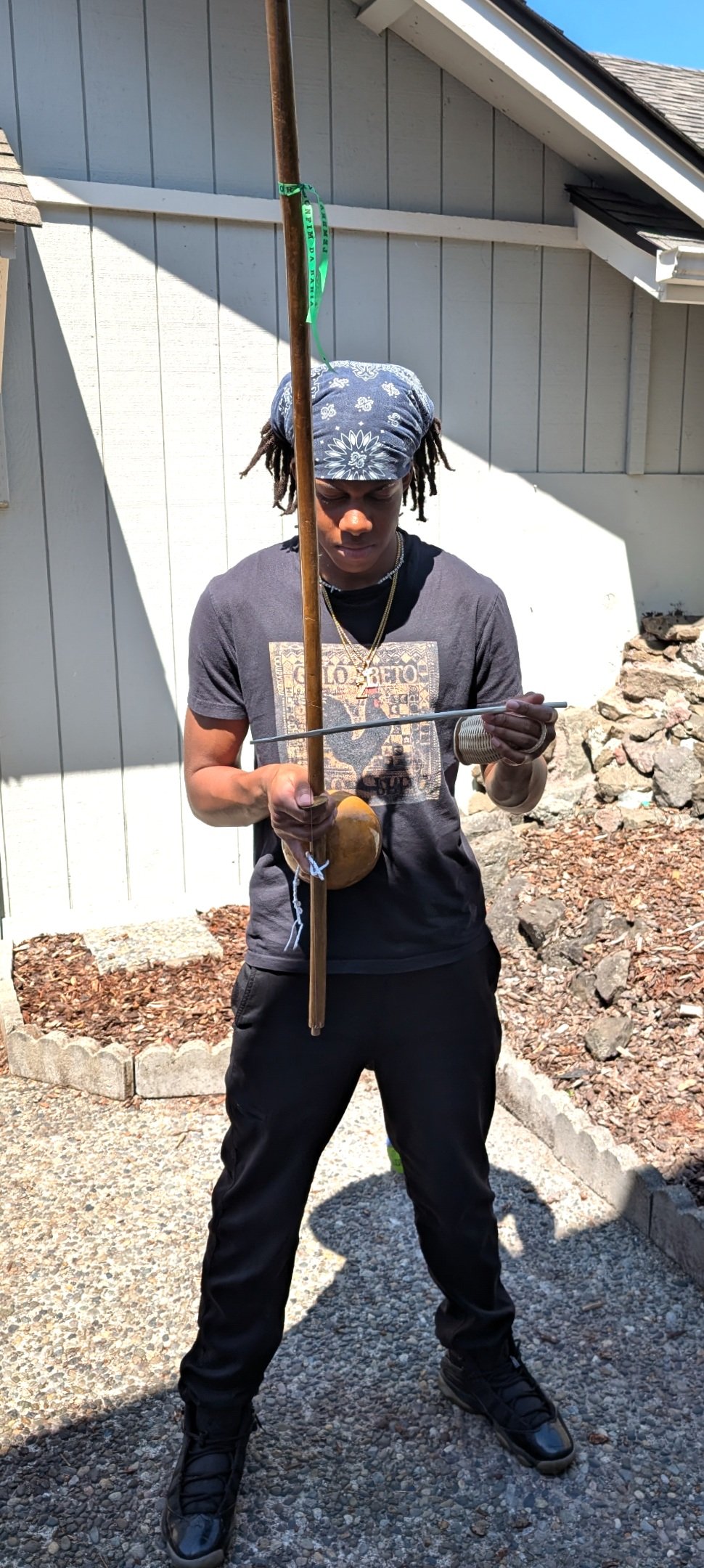mOVEMENT • mUSIC • lANGUAGe • CULTURE
COMMUNITY

Capoeira Origins
In the 1500’s, thousands of Africans were forcibly taken to Brazil under the brutal conditions of slavery. Africans were stripped of their cultural identity, traditions, families, and friends. Capoeira was created by the enslaved Africans as a form of resistance against enslavement. They trained in secret to develop physical and mental strength, protect their community, and nurture a sense of identity.
To hide the practice, enslaved Africans disguised the martial art with dance-like movements. Africans followed the rules of slave owners on the surface, but practiced capoeira when they could to build mental and physical strength. This resistance helped them cope with grief, trauma, malnutrition, beatings, amputations, killings, a lack of medical care, deconstruction of the mind and many more horrors of being enslaved.
Some enslaved Africans escaped from their plantations and created what was called Quilombos - communities of escaped slaves. The strongest was Quilombo dos Palmares because it lasted so long and was a thriving source of life, warriors, and community. They were even able to successfully defend themselves against the Portuguese for almost a century. Enslavement in Brazil was abolished in 1888, but because Capoeira was so dangerous the practice was outlawed. Despite this, the art was practiced and passed down in poor neighborhoods. In the 1930’s, the practice of Capoeira was legalized. It is now a celebrated element of the Brazilian national identity and culture. Today Capoeira continues to inspire individuals around the world to stand up for equality, embrace their identity, and build communities grounded in respect and understanding.
At Filhos de Palmares we celebrate and honor our roots with the practice of Capoeira Angola. Angola is a country in Africa where most people enslaved by Portugal and Brazil were taken. We continue the tradition and pay homage with our school’s name, Filhos de Palmares. It translates to “Children of Palmares” and honors our connection to the brave Afro-Brazilians of Quilombo dos Palmares, who used Capoeira to free and protect their community centuries ago. Also, naming our group Filhos de Palmares honors our Grande Mestre Nô , who created the group, Capoeira Angola Palmares. This lineage is where we have learned our capoeira style.




